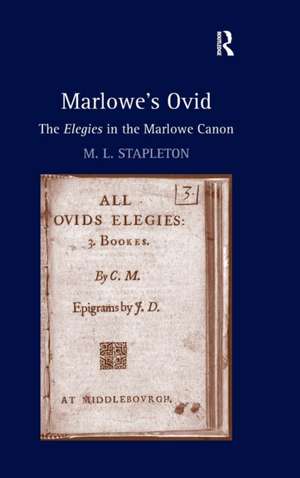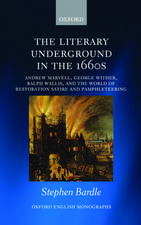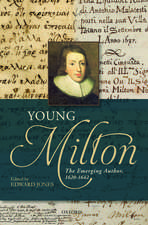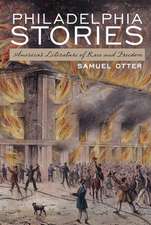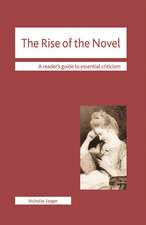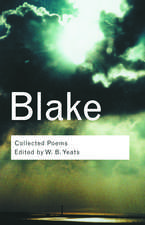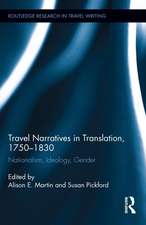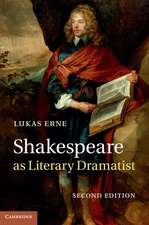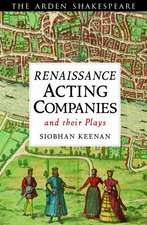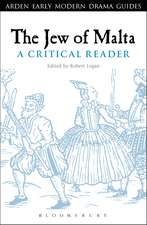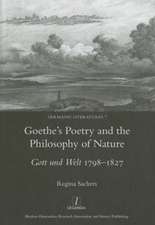Marlowe's Ovid: The Elegies in the Marlowe Canon
Autor M. L. Stapletonen Limba Engleză Hardback – 11 iun 2014
| Toate formatele și edițiile | Preț | Express |
|---|---|---|
| Paperback (1) | 386.99 lei 6-8 săpt. | |
| Taylor & Francis – 30 iun 2021 | 386.99 lei 6-8 săpt. | |
| Hardback (1) | 1061.06 lei 6-8 săpt. | |
| Taylor & Francis – 11 iun 2014 | 1061.06 lei 6-8 săpt. |
Preț: 1061.06 lei
Preț vechi: 1293.97 lei
-18% Nou
Puncte Express: 1592
Preț estimativ în valută:
203.02€ • 213.12$ • 168.52£
203.02€ • 213.12$ • 168.52£
Carte tipărită la comandă
Livrare economică 10-24 aprilie
Preluare comenzi: 021 569.72.76
Specificații
ISBN-13: 9781472424945
ISBN-10: 1472424948
Pagini: 272
Dimensiuni: 156 x 234 x 16 mm
Greutate: 0.64 kg
Ediția:1
Editura: Taylor & Francis
Colecția Routledge
Locul publicării:Oxford, United Kingdom
ISBN-10: 1472424948
Pagini: 272
Dimensiuni: 156 x 234 x 16 mm
Greutate: 0.64 kg
Ediția:1
Editura: Taylor & Francis
Colecția Routledge
Locul publicării:Oxford, United Kingdom
Cuprins
Introduction: "Small things with greater may be copulate": Marlowe the Ovidian
1 Marlowe, Theatrical Speech, and the Epicenter of Sonnetdom: The Elegies
2 Tamburlaine and "the argument/Of every Epigram or Eligi"
3 Parts That No Eye Should Nehold: Dido and the Desultor
4 "It is no pain to speak men fair": The Desultor in Edward II
5 The Massacre at Paris: The Desultor as Playwright
6 "Loue alwaies makes those eloquent that haue it": Ovid in Hero and Leander
7 Lente, Lente: Doctor Faustus and the Elegies
8 Ovid in The Jew of Malta
Coda
1 Marlowe, Theatrical Speech, and the Epicenter of Sonnetdom: The Elegies
2 Tamburlaine and "the argument/Of every Epigram or Eligi"
3 Parts That No Eye Should Nehold: Dido and the Desultor
4 "It is no pain to speak men fair": The Desultor in Edward II
5 The Massacre at Paris: The Desultor as Playwright
6 "Loue alwaies makes those eloquent that haue it": Ovid in Hero and Leander
7 Lente, Lente: Doctor Faustus and the Elegies
8 Ovid in The Jew of Malta
Coda
Notă biografică
M.L. Stapleton is Chapman Distinguished Professor of English at Indiana University-Purdue University, Fort Wayne. He has published books about Ovid, Seneca, Shakespeare, Spenser, Thomas Heywood, and Aphra Behn. He is editor of the New Variorum Shakespeare Julius Caesar, editor of Marlowe Studies: An Annual, and co-editor of Christopher Marlowe the Craftsman: Lives, Stage, and Page (Ashgate, 2010).
Recenzii
Classified as 'Research Essential' by Baker & Taylor YBP Library Services A Yankee Book Peddler UK Core Title for 2014
'This is a superb, accessible study that richly engages previous Marlowe scholarship. Stapleton usefully provides footnotes rather than endnotes, and there is an extensive bibliography. Summing Up: Highly recommended. Upper-division undergraduates through faculty.' -Choice
'Many critical studies of early modern English (and European) Ovidianism tend to focus, almost exclusively, on the admittedly decisive importance of the Metamorphoses. Michael L. Stapleton’s research consistently offers an invaluable contribution to the field by usefully drawing attention to the significant impact of Ovid’s other works as well. ' -Studies in Early Modern Mythology 3
'This informative, carefully documented study fully engages with contemporary Marlovian scholarship to bring a fresh perspective to the field of Renaissance Ovidian studies and the role of translation, providing a vivid and thought-provoking book.' -Renaissance Quarterly
'Marlowe's Ovid engages broadly with Marlovian criticism, and it is well-written and witty.' -Bruce E. Brandt, South Dakota State University, Comparative Drama
"It is often said that, once it has been made, a really good argument seems so obvious that one wonders why it has not been made before. This is exactly the case with this book: Stapleton’s argument for the significance of Ovid’s Amores throughout Marlowe’s oeuvre is so entirely persuasive, that it seems astonishing that it has not been made before now. We are fortunate, however, that at last this case has been made, and the resulting volume is indispensable book for all serious Marlowe students and scholars." - Dympna C. Callaghan, Syracuse University
'This is a superb, accessible study that richly engages previous Marlowe scholarship. Stapleton usefully provides footnotes rather than endnotes, and there is an extensive bibliography. Summing Up: Highly recommended. Upper-division undergraduates through faculty.' -Choice
'Many critical studies of early modern English (and European) Ovidianism tend to focus, almost exclusively, on the admittedly decisive importance of the Metamorphoses. Michael L. Stapleton’s research consistently offers an invaluable contribution to the field by usefully drawing attention to the significant impact of Ovid’s other works as well. ' -Studies in Early Modern Mythology 3
'This informative, carefully documented study fully engages with contemporary Marlovian scholarship to bring a fresh perspective to the field of Renaissance Ovidian studies and the role of translation, providing a vivid and thought-provoking book.' -Renaissance Quarterly
'Marlowe's Ovid engages broadly with Marlovian criticism, and it is well-written and witty.' -Bruce E. Brandt, South Dakota State University, Comparative Drama
"It is often said that, once it has been made, a really good argument seems so obvious that one wonders why it has not been made before. This is exactly the case with this book: Stapleton’s argument for the significance of Ovid’s Amores throughout Marlowe’s oeuvre is so entirely persuasive, that it seems astonishing that it has not been made before now. We are fortunate, however, that at last this case has been made, and the resulting volume is indispensable book for all serious Marlowe students and scholars." - Dympna C. Callaghan, Syracuse University
Descriere
The first book of its kind, Marlowe’s Ovid explores and analyzes in depth the relationship between the Elegies - Marlowe’s translation of Ovid’s Amores - and Marlowe’s own dramatic and poetic works. Stapleton carefully considers Marlowe’s Elegies in the context of his seven known dramatic works and his epyllion, Hero and Leander, and offers a different way to read Marlowe.
